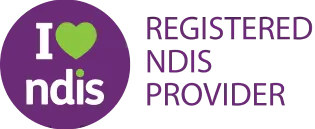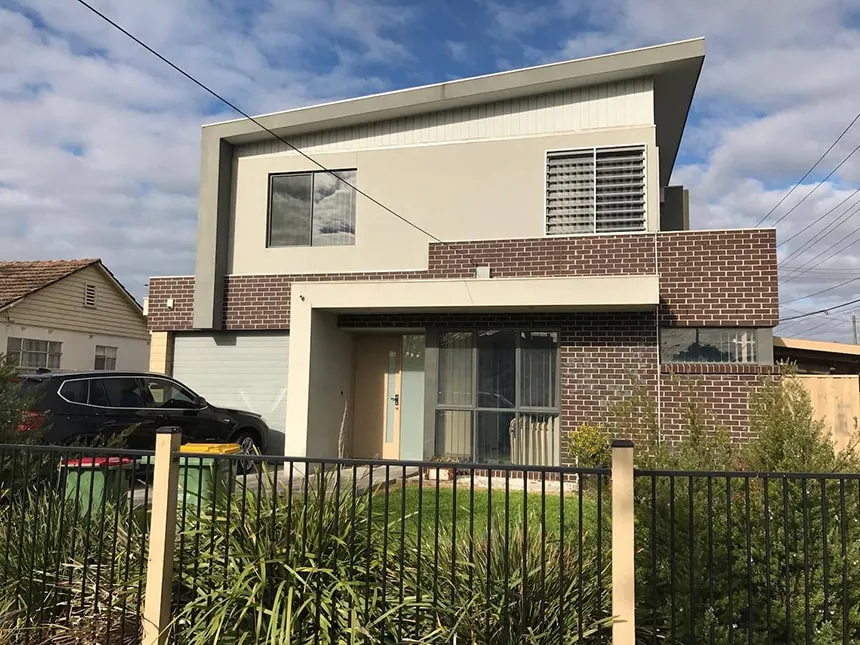
Method of Care

Method of Care

Method of Care

Discuss your needs with one of our Support Specialists Today

Respite Accommodations
Our message comes best through our video

What people are saying
Mikayla O’Connor
Had an amazing respite experience that was organised through Auslife Disability Care. It was organised by great and friendly community support workers who went above and beyond to ensure that my first respite experience was the best it could be! Very highly recommend Auslife 🙂
Azza Faltas
Auslife Disability Care is a great NDIS provider that provides personalised care delivered with compassion. That organisation is simply a gift from God. They always help you get on the right track and work with you according to your needs. We are very happy with the services they have been providing us. We recommend them to everyone
Sam Reese
Auslife is amazing I recommend this to everyone who needs help with there disability these guys have helped my brother so much and have changed he’s life for good best place.


Registered NDIS Provider in Melbourne - Auslife Care
Auslife Care is a leading registered NDIS provider in Melbourne. We provide comprehensive disability support services to individuals with permanent disabilities. Our mission is to provide quality NDIS services that enhance independence and improve daily living. As a trusted NDIS registered provider, we offer exceptional care to help participants lead fulfilling lives.
Understanding the NDIS: How Does It Support Participants?
Comprehensive NDIS Disability Support Services
Our experienced support workers specialise in delivering customised disability support services in Melbourne. They undergo extensive training to provide all-round care, focusing on the unique requirements of each participant. Using our expertise, we ensure individuals receive compassionate NDIS support and services that enhances their quality of life.
As a dedicated NDIS provider, we believe in building meaningful relationships. Our team fosters trust and collaboration, not only with NDIS clients but also with their families and other support networks. This holistic approach lets us develop tailored care plans that cater to every need.
Eligibility Criteria: Who Can Access NDIS Services in Melbourne?
- Are Australian citizens, permanent residents, or hold a Protected Special Category Visa
- Have a permanent and significant disability that impacts daily activities
- Are aged between 9 and 65 years old
Why Choose an NDIS Registered Provider in Melbourne?
NDIS support can be directly accessed by individuals as long as they meet the criteria. However, working with a trusted NDIS registered provider offers several other advantages. These include:
Experienced Professionals
Our team adheres to strict quality and safety standards set by the NDIS when providing any disability support services.
Better Fund Management
Participants don’t have to worry about micromanaging finances. We’ll look after your funds to ensure that you can access any NDIS services you want.
Reliable and Consistent Care
Our team provides dependable support to ensure you receive high-quality care in at all times.
Get Reliable NDIS Support in Melbourne - Contact Auslife Care Today!
Auslife Care is a dedicated NDIS registered provider in Melbourne, offering personalised disability support services to help participants lead independent and fulfilling lives. Whether you or a loved one requires professional disability care, our team is here to assist. Do you want to learn more about our NDIS services and how we can help?Call us on 03 9221 9232 / 03 9099 0092 or email us at info@auslifecare.com.au
Call us on or email us at info@auslifecare.com.au to explore our comprehensive disability support services today.

Reasons Why You Should Choose Auslife Care
Experience
Get the best disability services near you from our experienced experts in the caregiving industry.
Personalised care
When working with disabilities, we give our best to design and deliver the care and support you need, empowering you to live life your way.
People
We have a dedicated team across the state, so you can access a broad range of disability respite services in more locations.
Service
We provide expert advice and information to guide you on every step of the way and help make things simpler for you.
Passion
We are driven by a passion to support people to regain and retain their independence within a supportive community, by providing choices and services for people living with a disability or other personal needs.
Frequently Asked Questions
Who can access NDIS?
To be eligible for the NDIS you must:
- have a permanent and significant disability or a developmental delay
- be an Australian citizen, or hold a permanent visa or a Protected Special Category visa
- be under 65 years of age
- need support from a person or equipment to do everyday activities
If you want to be part of the NDIS, you must first meet the access requirements of the NDIS. You can contact the National Disability Insurance Agency (NDIA) on 1800 800**** if you have any questions about access to the NDIS. When you have gained access to the NDIS, the NDIA or one of their partner organisations will work with you to develop your first plan. If you don’t meet the requirements, find out what you can do if you’re not eligible for the NDIS.
What does it cost?
Each year, the National Disability Insurance Agency (NDIA) reviews the prices of NDIS supports. As stated in our Service Agreement, DPV Health adjusts prices in line with these pricing reviews.
Please note that the NDIA also increases the funds available in each participant’s NDIS plan if the prices of their supports have changed. This ensures that the same number of hours are available for participants to use.
For current information on NDIS support prices, please see the NDIS Price guides and pricing.If you have any questions, please contact our NDIS Engagement Officers at info@auslife.com.au
What type of supports are funded?
The types of supports that the NDIS may fund for participants include:
- Daily personal activities
- Transport to enable participation in community, social, economic and daily life activities
- Workplace help to allow a participant to successfully find or keep employment in the open or supported labour market
- Therapeutic supports including behavioural support
- Help with household tasks to allow the participant to maintain their home environment
- Help to participate by skilled personnel in aids or equipment assessment, set up and training
- Home modification design and construction
- Mobility equipment
- Vehicle modifications
There are some kinds of supports that will not be funded or provided by the NDIS.The NDIS Act and the rules made under the NDIS Act also tell us which supports will not be funded by the NDIS.
The NDIS cannot fund a support that is:
- The responsibility of another government system or community service
- Not related to a person’s disability
- Relates to day-to-day living costs that are not related to a participant’s support needs
- Is likely to cause harm to the participant or pose a risk to others.
Find more information on types of funded supports here: https://www.ndis.gov.au/
Can I access Early Childhood Intervention with NDIS?
The National Disability Insurance Scheme (NDIS) has a national approach to early childhood early intervention (ECEI) that gives children aged 0-6 years quick access to support that is tailored to their needs.
This support might be information, emotional support or referral to other services like community health services, playgroups or peer support groups. Your child might also get sessions with early childhood early intervention providers in the short term or medium term. This level of intervention might be all your child needs to reach their developmental goals.
If your child has longer-term support needs, your child might get an individualised NDIS support plan. This will help your child gain access to the appropriate supports over the long term.
The NDIS also supports children aged seven years and over, but the steps to support are different for children in this age group.
How can I access your services as an NDIS participant?
Once you have an NDIS plan in place, you can contact us directly to discuss your needs and goals. We will work with you to create a support plan and discuss how your NDIS funding can be utilised to access your required services.
Are your services covered by NDIS funding?
Yes, our services are covered by NDIS funding for eligible participants. We can ensure that your plan has appropriately allocated funding for the services you need.

Have an Enquiry? Speak to us
Resources & Downloads
We’re here to support you







